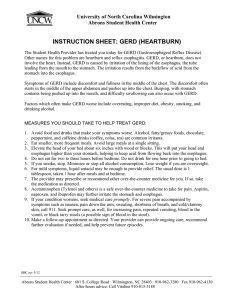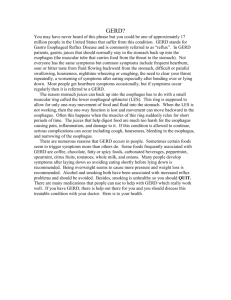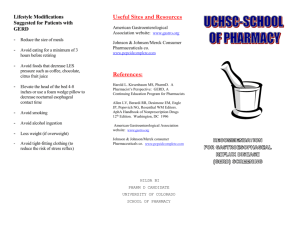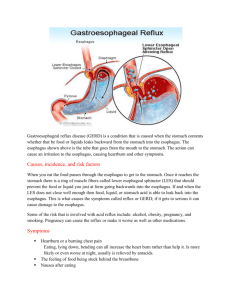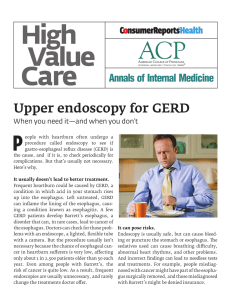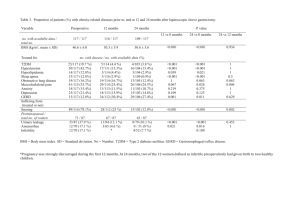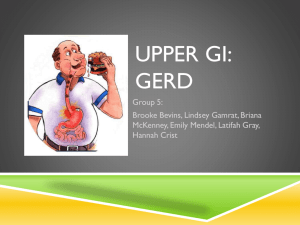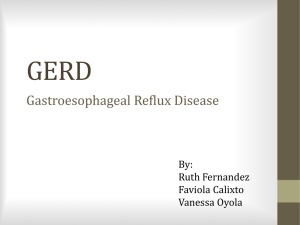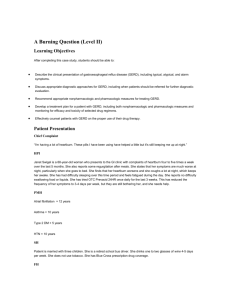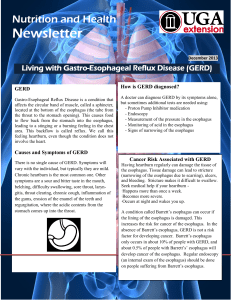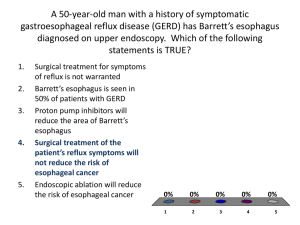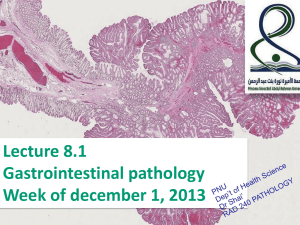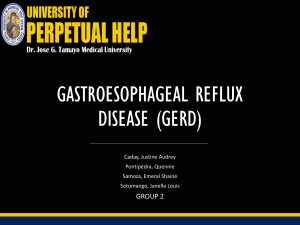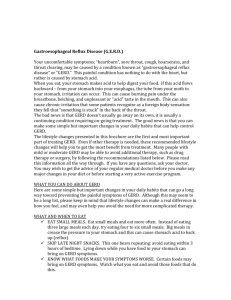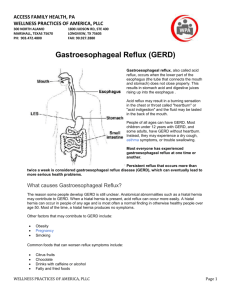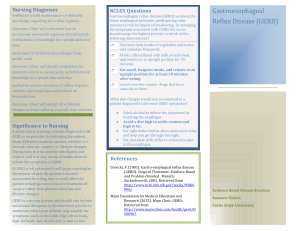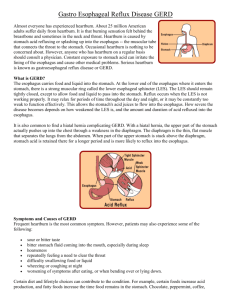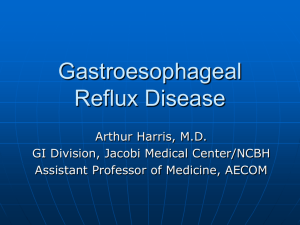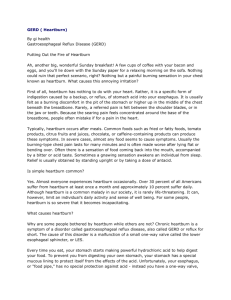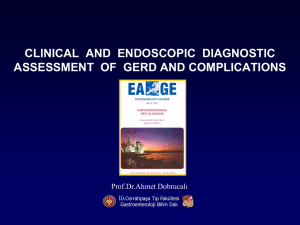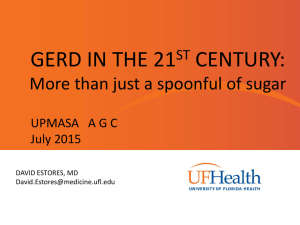GERD Awareness Week
advertisement
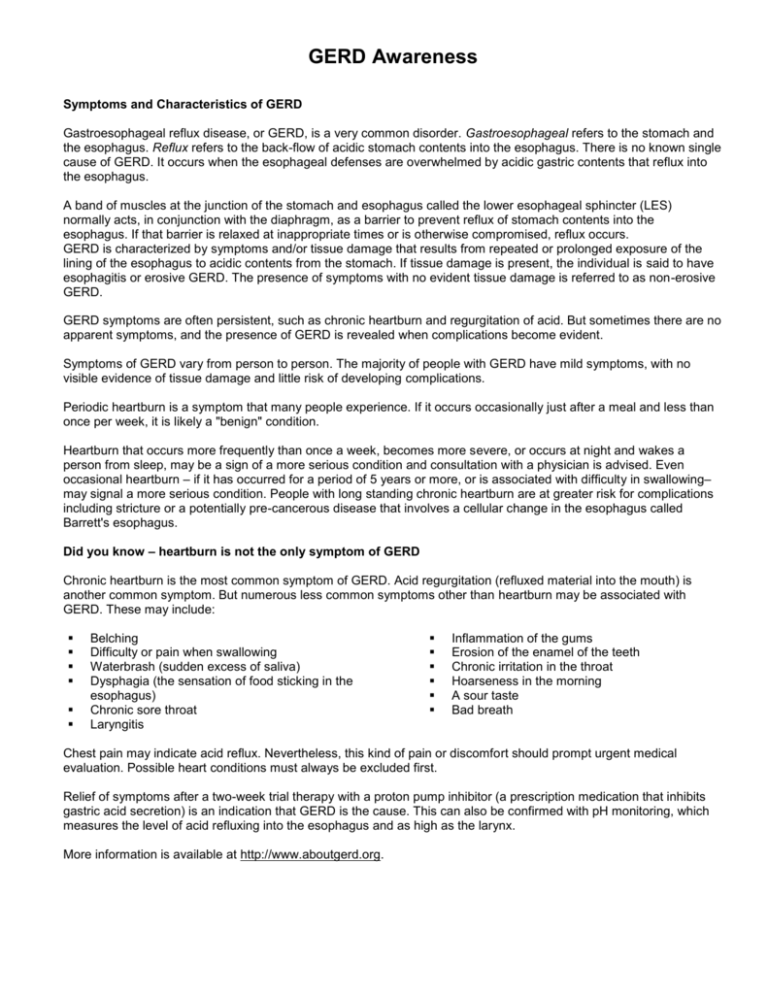
GERD Awareness Symptoms and Characteristics of GERD Gastroesophageal reflux disease, or GERD, is a very common disorder. Gastroesophageal refers to the stomach and the esophagus. Reflux refers to the back-flow of acidic stomach contents into the esophagus. There is no known single cause of GERD. It occurs when the esophageal defenses are overwhelmed by acidic gastric contents that reflux into the esophagus. A band of muscles at the junction of the stomach and esophagus called the lower esophageal sphincter (LES) normally acts, in conjunction with the diaphragm, as a barrier to prevent reflux of stomach contents into the esophagus. If that barrier is relaxed at inappropriate times or is otherwise compromised, reflux occurs. GERD is characterized by symptoms and/or tissue damage that results from repeated or prolonged exposure of the lining of the esophagus to acidic contents from the stomach. If tissue damage is present, the individual is said to have esophagitis or erosive GERD. The presence of symptoms with no evident tissue damage is referred to as non-erosive GERD. GERD symptoms are often persistent, such as chronic heartburn and regurgitation of acid. But sometimes there are no apparent symptoms, and the presence of GERD is revealed when complications become evident. Symptoms of GERD vary from person to person. The majority of people with GERD have mild symptoms, with no visible evidence of tissue damage and little risk of developing complications. Periodic heartburn is a symptom that many people experience. If it occurs occasionally just after a meal and less than once per week, it is likely a "benign" condition. Heartburn that occurs more frequently than once a week, becomes more severe, or occurs at night and wakes a person from sleep, may be a sign of a more serious condition and consultation with a physician is advised. Even occasional heartburn – if it has occurred for a period of 5 years or more, or is associated with difficulty in swallowing– may signal a more serious condition. People with long standing chronic heartburn are at greater risk for complications including stricture or a potentially pre-cancerous disease that involves a cellular change in the esophagus called Barrett's esophagus. Did you know – heartburn is not the only symptom of GERD Chronic heartburn is the most common symptom of GERD. Acid regurgitation (refluxed material into the mouth) is another common symptom. But numerous less common symptoms other than heartburn may be associated with GERD. These may include: Belching Difficulty or pain when swallowing Waterbrash (sudden excess of saliva) Dysphagia (the sensation of food sticking in the esophagus) Chronic sore throat Laryngitis Inflammation of the gums Erosion of the enamel of the teeth Chronic irritation in the throat Hoarseness in the morning A sour taste Bad breath Chest pain may indicate acid reflux. Nevertheless, this kind of pain or discomfort should prompt urgent medical evaluation. Possible heart conditions must always be excluded first. Relief of symptoms after a two-week trial therapy with a proton pump inhibitor (a prescription medication that inhibits gastric acid secretion) is an indication that GERD is the cause. This can also be confirmed with pH monitoring, which measures the level of acid refluxing into the esophagus and as high as the larynx. More information is available at http://www.aboutgerd.org.
